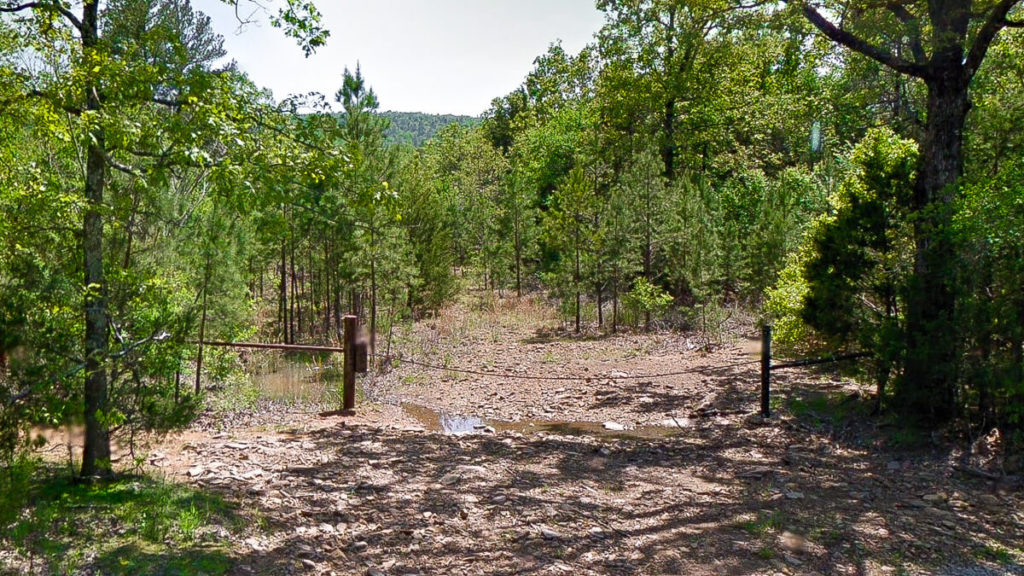Yes, it is illegal to camp on private property without getting permission. All states refer to this as “criminal trespass”, and it is a criminal offense. A property owner can contact police and have you arrested, and you will likely be charged depending on what degree you have trespassed. However, each state defines this differently, and may require different conditions be met in order to qualify it as “criminal”.

Is it Illegal to Camp On Private Property Without Getting Permission?
The primary test to determine “criminal trespass” is if you knew you were trespassing on private property. Usually the court will check to see if the land owner either put up “No Trespassing” signs, or has put up a fence. If either of those two exist, then there is a strong argument that you knew you were trespassing.
Penalties for criminal trespass are usually misdemeanors, but could upgraded to a felony if you also entered a building, destroyed property, spent too much time, et al.
Each state addresses the issue of criminal trespass in their Criminal Code.
You May Also Have to Pay for Damages
If your campsite caused damage to the land, trees, bushes, or impacted the land in anyway, you could also be sued in a civil lawsuit for damages.
Even stuff like leaving tire tracks on the land, leaving pieces of garbage, starting a campfire, gathering firewood, moving rocks and clearing away brush, can all be counted towards damages.
What if I Did Not Know I Was Entering Private Property?
Then you are still trespassing, but it might no longer be considered “criminal”. However, it is up to you to prove that the property owner did not make clear where his property line was. If you’re not sure you’re trespassing, it’s a good idea to take several photos of your access from the road to prove there were no fences or signs.
However, criminal trespass also applies when informed by the property owner that you have trespassed, was ordered to leave, but refused to leave.
The property owner does not have to serve you with an eviction notice. He only needs to contact police.
Implied Consent
Implied consent means that the property owner made no indication where his property line exists, and made no indication that trespassing is not allowed.
If there is “implied consent” you can enter without criminal trespass. However, the property owner can still order you to leave, and you will be required to leave.
But just because you have implied consent does not mean you are now free to gather firewood, build a campfire, and leave tire tracks on the land. You can still be sued for any damages you cause to the land.
Setting Up Camp on Private Property
In addition to trespassing on private property, setting up some kind of sleeping quarters, temporary shelter, or even parking your vehicle, can elevate penalties if a court determines you had criminally trespassed.
That is, not only are there penalties for criminal trespass, there can be sentencing to jail or prison if it you were using that land for overnight camping or long term stay.
What If I Was Invited to Enter By Someone Else?
If you were invited to enter by someone else who holds authority on behalf of the property owner, then you are no longer trespassing.
That person could be someone who resides on the property, or is an immediate family member of the owner, or has their principal place of employment on the property. However, this is a general statement for discussion purposes. Each state defines this differently, and you will have to refer to that State’s laws and regulations for clarification.
However, the property owner still has the right to order you to leave, and if you refuse to leave, you are now in criminal trespass.
The Property Owner Can Also Be Liable For Your Injuries
If you trespassed into private property, whether criminal or not, and you were injured on their property, the property owner “might” be liable. But this is only the case where the property owner knew there was a reasonable danger existing, and also knew that trespassers often entered his property and did nothing about it.


What if the trespassing arrest will displace the homeless? Does The county or state or property owner provide resources or cover costs of displacement?
The burden of dealing with homeless is not the domain of states, but of counties and cities. All medium to large cities have some kind of assistance program that provides shelter, clothing, food, and medical care to homeless persons. Most counties and small cities have a mission operated by Catholic Charities, Salvation Army, or other non-profit organization that does the same thing. Should a law enforcement officer force a homeless person to vacate someone’s private property, then that homeless person must seek assistance from the county or city. It’s important to note that counties and cities cannot force a person to receive assistance. That is, a person must instead seek out assistance by contacting the appropriate agency in charge. A law enforcement officer may elect to give that person information about where to get assistance, but the burden is still on the homeless person to get that assistance.